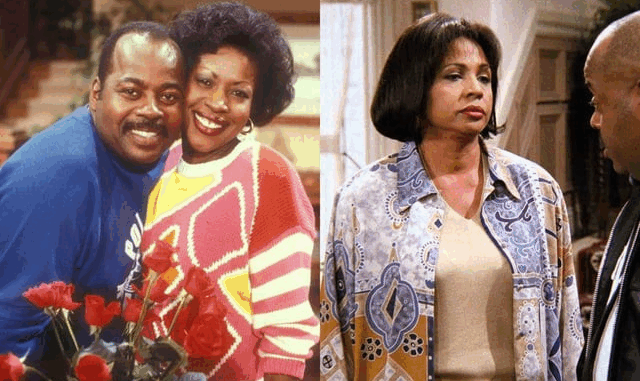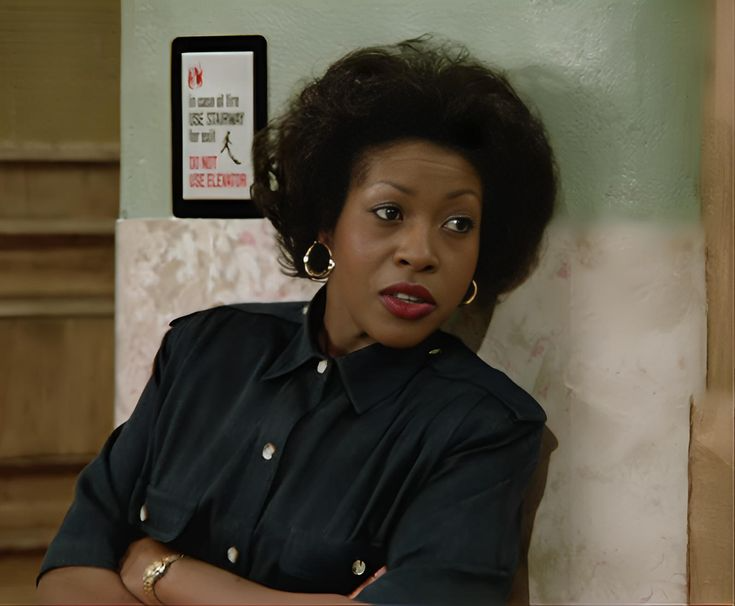
You remember her—the strong, warm, no-nonsense matriarch on Family Matters, Harriette Winslow, portrayed by Jo Marie Payton. For nearly a decade, she anchored the show. Then, almost without warning, she left—and the show carried on without her. What happened? Why did she leave when she did? What did behind-the-scenes look like? In this article, we dig into the real story behind her departure, the tensions, the creative shifts, and what it all means.
1. Who Was Harriette Winslow & Why She Mattered
Harriette Winslow wasn’t just any TV mom; she was a cultural icon. In the show’s narrative, she balanced career and family, spoke truth, maintained dignity—and held the household together. Jo Marie Payton brought authenticity, charm, and authority to the role, making Harriette relatable and memorable. Her evolution from the elevator operator in Perfect Strangers to the Winslow matriarch demonstrated her range and audience connection.
2. When the Sitcom Changed: The Rise of Steve Urkel
At first, Family Matters centered on the Winslows, but as the show progressed, the spotlight increasingly moved toward the breakout character Jaleel White played—Steve Urkel. The narrative pivot meant less focus on characters like Harriette and more on comedic gimmicks and star power. Payton herself acknowledged that dynamic—she felt the show morph into something different than what she originally signed up for.
3. Contract, Burnout & Desire for More
Behind her departure lies a mix of professional desire and personal repositioning. Payton explained she had reached a point where she wanted to “bake something other than chocolate cookies”—a metaphor for doing something new, creative, and fulfilling beyond the role she’d played for years. The contract for Season 9 offered an out, which she took.
4. The Recast That Shocked Fans
Mid-Season 9 of Family Matters, Payton left and the role of Harriette was recast with Judyann Elder for the final episodes. This abrupt change generated fan disappointment, because Harriette had been a constant presence for years. The sudden departure left a void in the show’s emotional core.
5. Tensions On-Set: Payton’s Allegations
Payton has publicly alleged that on-set tensions reached a boiling point with Jaleel White. She claimed that during the filming of the episode “Original Gangsta Dawg,” White “wanted to physically fight me” after a disagreement about a scene. The moment speaks to deeper dynamics: child stardom, shifting power structures, and the strain of long-running ensemble shows.
6. Creative Frustration: Losing Her Character’s Focus
It wasn’t just contract fatigue—it was creative frustration. Payton has said she felt stifled as the show shifted away from the Winslow family and toward comic spectacle. She described the dissonance: when the focus changes, even a successful show can feel like it’s losing its reason to exist.
7. Personal Life & External Pressures
Outside the set, Payton was going through changes: personal reinvention, possibly marriage transitions, and exploring other passions like music and other projects. Those pressures often compound workplace dissatisfaction—especially in a long-running TV role. She didn’t leave in anger; she left in pursuit of something more authentic.
8. Why the Departure Happened When It Did
Season 9 was already turbulent: the show moved networks (from ABC to CBS), ratings dropped, and the tone shifted. Payton’s contract allowed her to depart after the first segment of the season. The move made strategic sense: for her personally, and perhaps for the show’s producers who knew change was coming.

9. Impact on Cast & Crew
Cast members have reflected on her exit with mixed emotions. Some felt the dynamic changed irreparably. For example, one cast member said it felt like losing a mother and remarrying someone else—they acknowledged the difficulty of such a shift. Behind the scenes, such transitions affect morale, storylines, and viewer loyalty.
10. Legacy of Harriette Winslow & Payton’s Career After
Despite the turbulence, Payton’s legacy is intact. Harriette remains iconic. After Family Matters, Payton went on to voice Suga Mama in The Proud Family and continued acting in various roles. Her decision to leave highlighted her agency and showed that sitcom actors aren’t bound forever to a role.
11. Viewer Reaction & Internet Memory
Fans still talk about it—forums, Reddit threads, and articles revisit the recast and departure. One viewer summarized it: “I heard she walked off set as soon as her contract was up.” The speculation lives on. These kinds of TV-era mysteries fuel nostalgia and internet culture.
12. What the “Scandal” Really Was
Calling it a scandal may be overblown. It wasn’t crime; it wasn’t huge public controversy like some newsroom exposés. But it was a behind-the-scenes shake-up, mixing creative dissatisfaction, power shifts, child actor issues, and network pressures. The scandal is more cultural than sensational—but still instructive.
13. Lessons for Television & Actors
From Payton’s story, you learn:
-
Know your value and when to pivot.
-
Recognize when the story you signed up for is no longer the story you’re in.
-
Child stardom and breakout characters change shows—but they also change relationships.
-
Long-running roles carry both privilege and risk.
TV isn’t just about the viewers—it’s about the people making it.
14. Could Things Have Ended Differently?
Absolutely. If the show had stayed focused on the family unit rather than shifting so heavily to Urkel, perhaps Payton might have stayed. If her contract had been structured differently or creative dialogue had been stronger, maybe the recast wouldn’t have had to happen. Hypotheticals abound, but they don’t change what actually happened.
15. Final Thoughts: Respecting the Push & the Pause
Jo Marie Payton’s exit from Family Matters wasn’t a melodramatic scandal—it was a calculated pause. She recognized that the path she was on no longer matched her creative or professional goals. She left with dignity. The show changed, the audience noticed, and the legacy remains. The story reminds us: sometimes the bravest move is to walk away.
Conclusion
When you look back at Harriette Winslow’s departure, it’s easy to slot it in as “that weird recast moment,” but the full story is richer. It’s about career evolution, shifting sitcom dynamics, actors reclaiming space, and how long-running shows sometimes lose the very thing that made them special. Jo Marie Payton chose to step forward into something new rather than remain stuck. For fans, the recast is a reminder of how even beloved shows are subject to business, creativity, and human choices. And for creators, it stands as a marker: respect the characters, respect the people behind them—and respect the moment when it’s time to move on.
FAQs
1. Why did Jo Marie Payton leave Family Matters?
She explained that after nearly nine years she wanted to explore other creative opportunities, felt the show’s direction had shifted away from what she originally signed up for, and chose her contract’s exit clause.
2. Was there a fight between Jo Marie Payton and Jaleel White on set?
According to Payton, yes—she claimed that during a particular episode, Jaleel White became upset about a scene and there was a near-physical incident. She later clarified that she held no lasting grudge.
3. Who replaced her as Harriette Winslow?
Actress Judyann Elder took over the role for the final episodes of the show’s ninth season.
4. Did her departure affect the show’s quality or fan reception?
Many fans felt the show lost some of its emotional stability; cast members noted the dynamic shifted. The recast and departure contributed to the perception that the show had changed significantly in its final season.
5. What has Jo Marie Payton done since leaving the show?
She has continued acting, voiced characters (such as Suga Mama in The Proud Family), and pursued other creative projects. She maintains her legacy as the original Harriette Winslow and speaks comfortably about her decision to leave.
